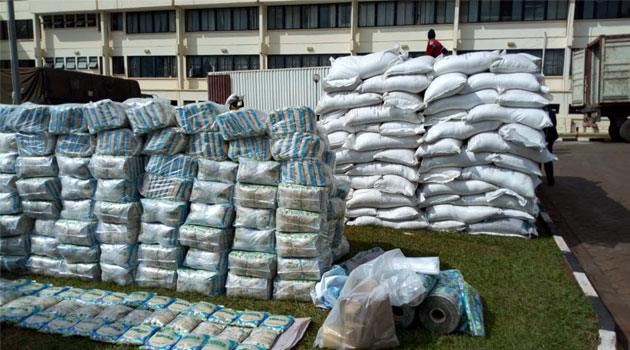
In 2018, security agencies impounded sugar that was believed to be unfit for human consumption in different parts of the country.
The more than 1,000 bags of illegally imported sugar from warehouses in the capital Nairobi and other parts of the country drew mixed opinions with interior cabinet secretary Fred Matiangi claiming that harmful levels of mercury and copper had been found in samples tested from the sugar seized in Nairobi’s Eastleigh area.

However, Trade Minister Adan Mohamed, denied that the impounded sugar sacks contained mercury.
However during a four-hour close-door meeting with Kinoti and various heads of National Assembly Committee on Administration and National Security, DCI boss george Kinoti confirmed the worst fears.
In a shock development on Thursday, Mr Kinoti said that quality tests had confirmed that the impounded sweetener was not fit for human consumption.
He did not clarify if the sugar contained the alleged metal but it is believed so.
Why

In 2018, During the a test by Kenya’s Government Chemist, which is tasked with carrying out biochemical analysis of products ,analysis carried out on samples of the 1,400 bags of illegal sugar seized by police in different operations, revealed that some of the sugar contained contaminated water insoluble matter.
The tests carried out at the government chemist and whose results Interior Cabinet Secretary, Fred Matiang’i has termed as ‘shocking’ reveal the dangers that Kenyans have been exposed to, since the contents of the sugar, medics say, are capable of causing some types of cancer and harming internal organs.
Despite the sacks of the sweetener being marked as ‘not safe for human consumption’ unscrupulous businessmen packaged them in 1kg and 2kg packets, disguised as local brands among them Kabras, Mumias Sugar, West Sugar and Kilimo Kenya.

World Health Organisation (WHO) indicates that elemental mercury are toxic to the central and peripheral nervous systems. The international organisation also indicates that ingestion and inhalation of mercury vapour can produce harmful effects on the nervous, digestive and immune systems, lungs and kidneys, and may be fatal.
Should Kenyans be worried?

It is hard to say anything definitive at this point, given the contradictory reports that have been coming from different government authorities.
But experts in the field are not impressed at the government’s handling of the situation.
“Conflicting information from the government should be a cause for worry for Kenyans”, says Dr Catherine Kunyanga, senior lecturer at the University of Nairobi’s department of food science, nutrition and technology.
“Any presence of heavy metals in foodstuffs should worry consumers,” she said
If the reports of heavy metals contaminating sugar supplies are confirmed, she thinks it would be a cause for concern, especially when it comes to lead.
Lead is more toxic than mercury, she says, and children are particularly vulnerable to the harmful effects of lead, which can damage the brain and nervous system.
As for copper, Dr Kunyanga says it could have been introduced if the soil or water feeding the sugarcane plant was contaminated.
Her advice to Kenyans is to stop buying cheap sugar, which is more likely to be contaminated.
.